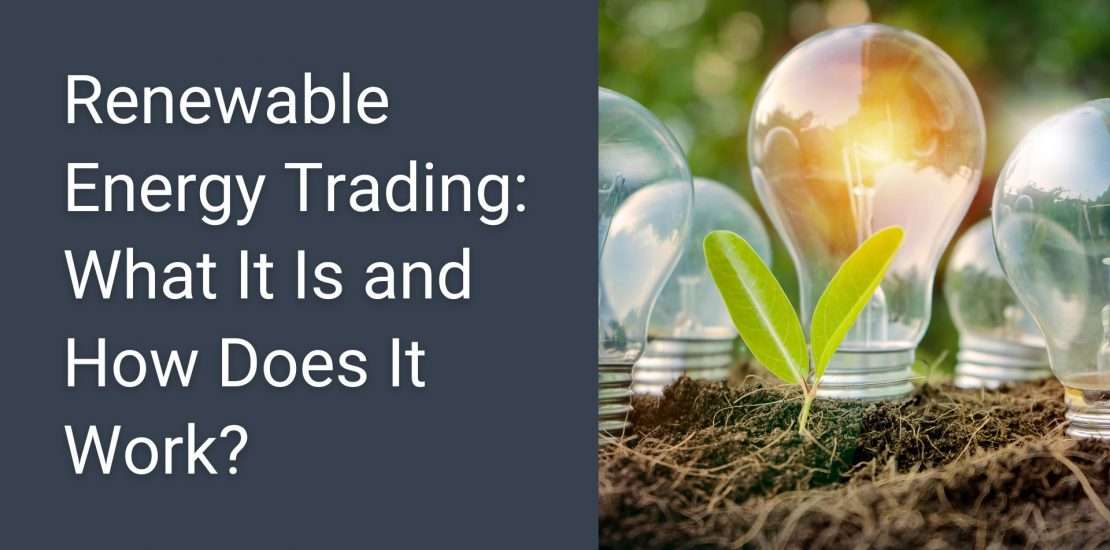Renewable Energy Trading: What It Is and How Does It Work?
- June 9, 2022
- Posted by: Anand SEO
- Categories:

Introduction
The landscape of renewable energy trading has undergone significant changes since the original publication of the blog in June 2022. With the global push towards cleaner energy sources and the increasing urgency to address climate change, renewable energy trading has become a cornerstone of the energy sector. This updated blog aims to provide a comprehensive overview of current trends, challenges, and opportunities in renewable energy trading, reflecting the latest developments and market dynamics.
What Is Renewable Energy Trading?
Renewable energy trading involves the buying and selling of energy generated from renewable sources such as solar, wind, geothermal, and biofuels. Unlike conventional energy trading, which relies on finite resources like oil and coal, renewable energy trading focuses on sustainable and inexhaustible resources. This shift is crucial for reducing carbon emissions and achieving environmental goals.
Current Landscape of Renewable Energy Trading
The renewable energy trading market has experienced robust growth, driven by technological advancements, government policies, and increasing demand for sustainable energy. According to recent data, the global renewable energy market is projected to grow significantly, with substantial investments in solar and wind energy.
Key Drivers
- Policy Support: Governments worldwide are implementing policies to encourage the adoption of renewable energy. In the U.S., the Inflation Reduction Act (IRA) has played a pivotal role in accelerating clean energy investments.
- Technological Advancements: Innovations in solar photovoltaics and wind turbine technologies have reduced costs and increased efficiency, making renewable energy more competitive.
- Corporate Initiatives: Major corporations are committing to renewable energy through initiatives like RE100, driving demand for clean energy solutions.
Benefits of Renewable Energy Trading
Renewable energy trading offers several advantages:
- Sustainability: It provides a sustainable energy supply, reducing dependency on fossil fuels.
- Economic Growth: The sector is expected to create millions of jobs and stimulate economic growth.
- Energy Security: Diversifying energy sources enhances energy security and reduces geopolitical risks.
Challenges in Renewable Energy Trading
Despite its benefits, renewable energy trading faces several challenges:
- Grid Integration: Integrating renewable energy into existing grids requires significant infrastructure upgrades to handle variability and ensure stability.
- Regulatory Hurdles: Navigating complex regulations and obtaining permits can delay project implementation.
- Supply Chain Constraints: The industry faces supply chain issues, impacting the availability of critical components like solar panels and wind turbines.
The Role of Energy Trading and Risk Management (ETRM) Solutions
ETRM solutions are essential for managing the complexities of renewable energy trading. These platforms provide real-time data and analytics, enabling traders to optimize operations, manage risks, and capitalize on market opportunities. Inatech’s renewable fuels ETRM, for example, offers comprehensive tools for credit management, hedging, and inventory control.
Future Outlook
The future of renewable energy trading looks promising, with several trends shaping the industry:
- Increased Investment: Continued investment in renewable infrastructure and technology is expected to drive growth.
- Decentralized Energy Systems: The rise of decentralized energy systems, such as microgrids and community solar projects, will transform energy trading dynamics.
- Digital Transformation: Digital technologies, including artificial intelligence and blockchain, are poised to enhance transparency and efficiency in energy trading.
Conclusion
Renewable energy trading is at the forefront of the global transition to sustainable energy. As the industry evolves, it presents both challenges and opportunities for stakeholders. By leveraging advanced technologies and supportive policies, renewable energy trading can play a crucial role in achieving a cleaner, more resilient energy future.




